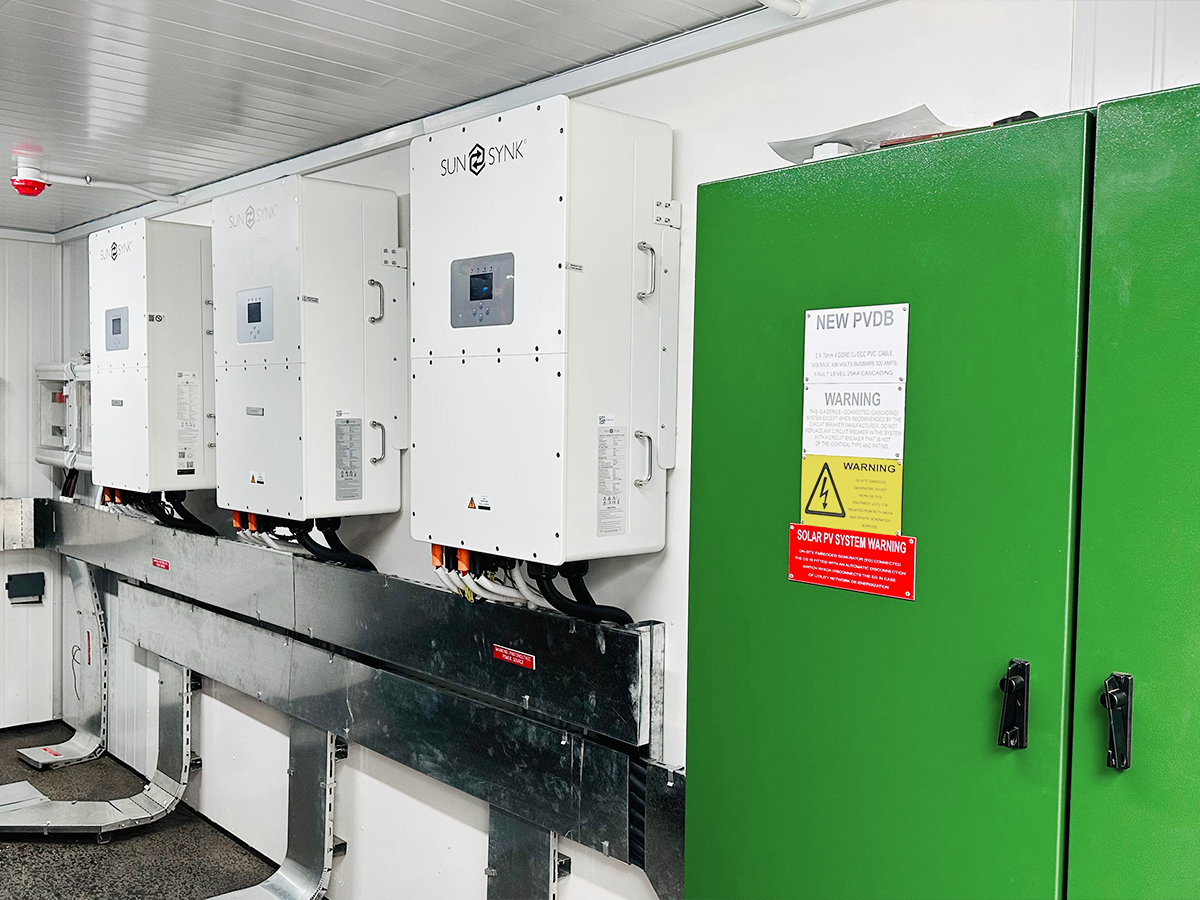Explore hybrid solar systems in South Africa from 5kW to 100kW. Get the best hybrid solar system price with expert installation and backup power flexibility.
As South Africa continues to face frequent load shedding and rising electricity costs, hybrid solar systems have emerged as a smart and reliable solution for homeowners and businesses. Combining the best of both grid-tied and off-grid systems, hybrid solar setups offer greater flexibility, energy security, and cost efficiency.
Whether you’re considering a 5kW hybrid solar system for a small home or a 50kW hybrid solar system for a commercial property, understanding the options, benefits, and pricing involved is key to making the right choice.

A hybrid solar system is a combination of a traditional grid-tied solar system and an off-grid solar solution. It typically includes:
This setup allows you to use solar energy during the day, store excess power in batteries, and draw from the grid when needed — giving you power security day and night.
In South Africa, the unpredictability of Eskom power supply makes hybrid systems increasingly popular. Key advantages include:
Hybrid solar systems come in a range of sizes to meet different energy demands. Here’s a breakdown of popular system capacities:
| System Size | Ideal For | Key Features |
|---|---|---|
| 5kW Hybrid Solar System | Small homes or apartments | Powers basic appliances, lights, electronics. Entry-level system with battery backup. |
| 8kW Hybrid Solar System | Medium-sized households | Supports fridge, lights, TV, Wi-Fi, washing machine, some air conditioning. |
| 12kW Hybrid Solar System | Larger homes or small offices | Handles pool pumps, multiple AC units, and home offices. |
| 16kW Hybrid Solar System | Large homes or small businesses | Supports significant daily power needs with reliable battery storage. |
| 20kW Hybrid Solar System | Farms, guesthouses, larger commercial sites | Offers high energy output and improved power autonomy. |
| 30kW Hybrid Solar System | Mid-sized businesses or commercial setups | Provides cost savings and dependable energy supply. |
| 50kW Hybrid Solar System | Factories, office parks, industrial use | Delivers maximum power output with robust battery backup and grid independence. |
Prices can vary based on system size, component brands, and installation complexity. Here is a rough estimate:
| System Size | Estimated Price Range (ZAR) |
|---|---|
| 5kW | R80,000 – R120,000 |
| 8kW | R120,000 – R160,000 |
| 12kW | R160,000 – R220,000 |
| 16kW | R220,000 – R300,000 |
| 20kW | R300,000 – R400,000 |
| 30kW | R450,000 – R600,000 |
| 50kW | R700,000 – R1,000,000 |
| Advantage | Details |
|---|---|
| Power During Load Shedding | Battery storage ensures electricity supply during outages. |
| Reduced Electricity Bills | Use solar energy first, minimizing reliance on the national grid. |
| Energy Independence | Less affected by rising electricity tariffs or grid instability. |
| Efficient Energy Use | Smart inverters manage energy from solar, batteries, and the grid. |
| Environmental Benefits | Reduces carbon footprint and promotes clean energy use. |
| Scalability | Can upgrade batteries or solar panels as energy needs grow. |
| Backup and Grid Support | Can draw from the grid when solar and batteries are low. |
| Disadvantage | Details |
|---|---|
| Higher Initial Cost | More expensive than grid-tied systems due to battery storage. |
| Battery Maintenance | Batteries may need replacement every few years, adding to long-term costs. |
| Complex Installation | Requires careful planning and a qualified installer. |
| Space Requirements | Batteries and inverters need indoor or sheltered space. |
| Efficiency Losses | Energy conversion (solar > battery > usage) can involve minor losses. |
| Not Fully Off-Grid | Still relies on the grid when solar and battery levels are insufficient. |
Simply provide your details and one of our experts will contact you!
We’ve helped thousands of South Africans take control of their energy future—now it’s your turn.
We guide you through every step of the solar journey, making the transition easy while helping build a sustainable, solar-powered future.
We analyze your energy needs and assess your property.
We propose an inverter and battery setup that fits your consumption and goals.
Quick, clean, and compliant with all local regulations.
We make sure everything runs smoothly and safely. Remote monitoring, troubleshooting, and upgrades available.
Whether you’re looking to escape the grip of load shedding or just cut down on energy bills, hybrid solar systems in South Africa are a future-proof investment. From a 5kW hybrid solar system perfect for residential use to a 50kW hybrid solar system ideal for commercial properties, there’s a setup for every need and budget.
Make the switch today and take control of your energy future.